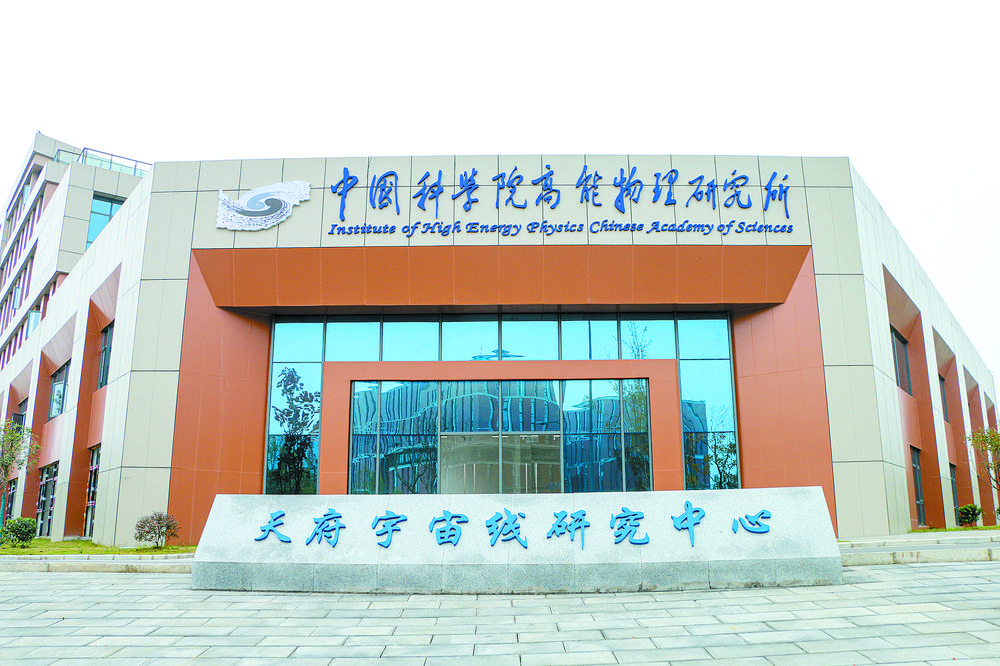Accommodation in Chengdu
Hotel: Courtyard by Marriott Chengdu South
Address: No.288, Expo City Road, next to Western China International Expo City block of Tianfu New Area, Chengdu, Sichuan, P.R.China 610218
Telephone Number:+86 28 6719 6666 Fax Number: +86 28 6719 6666
成都天投万怡酒店
地址: 成都市天府新区博览城路288号, 中国西部国际博览城旁
邮编:610218 电话:+86 28 6719 6666

It is close to the Subway Station Guang-zhou-lu(广州路) of Line 1(about 630m from Exit B3).
From Shuangliu International Airport: about 35km, by taxi it takes 40 minutes and CNY95, by metro it takes 50 minutes and CNY7.
From Tianfu International Airport: about 55km, by taxi, it takes 45 minutes and CNY150, by metro it takes 60 minutes and CNY9.

Conference Site
F5 Conference Room, Tianfu Cosmic Ray Research Center
Address: No. 1500, Kezhi Road, Tianfu New Area, Chengdu City
You can take shuttle bus between the hotel and conference site. 
Visit to LHAASO Observatory Site in Daocheng
the flights are recommended:
1. from Chengdu Tianfu International Airport to Daocheng Yading Airport
Oct 30th: Flight 3U6693, 08:40(TFU,T2)-10:10(DCY)
2. from Daocheng Yading Airport to Chengdu Tianfu International Airport
Oct 31th: Flight 3U6694, 10:55(DCY) -12:15(TFU, T2)
There will be buses to take visitors from the hotel (Courtyard by Marriott Chengdu South )to Tianfu Airport and from Daocheng Yading Airport to the LHAASO site on Oct 30th, and from the hotel in Daocheng to Yading Airport on Oct 31st.
Accommodation in Daocheng
Hotel: Snow Area Hot Spring Garden Hotel
Address: No. 52, Section 2 of Gongba Road, Jinzhu Town, Daocheng, P.R.China 627750
Telephone Number: +86-836-5724444
LOC will book the hotel for conference participants if they choose to have accommodation in Daocheng when register online.
Daocheng Travel Health
Make sure you are healthy before you start traveling. If you require a particular medication take an adequate supply, as it may not be available locally. It`s good to have a legible prescription or letter from your doctor to show that you legally use the medication to avoid any problems.
Clothes Due to the heights and resulting lower temperatures compared to plain areas, Daocheng is characterized by enormous differences in temperature between day and night. You are recommended to take down jackets or windproof jackets, thin sweaters, long johns, gloves, and warm shoes. In addition, you may have to change clothes between thick and thin frequently, to avoid getting a cold.
Sunscreen Considering the intense UV exposure, dry climate, and variable weather in Daocheng, you are recommended to take sunglasses, an all-weather umbrella, sunscreen lotion, and lip balm.
Altitude Sickness
Lack of oxygen at high altitudes (over 2500 m) affects most people to some extent. The effect may be mild or severe and occurs because less oxygen reaches the muscles and the brain at high altitudes, requiring the heart and lungs to compensate by working harder. Acute mountain sickness (AMS) is common at high altitudes, and depends on the elevation, the rates of ascent, and individual susceptibility. The major risk factor in AMS is the speed with which you make your ascent.
Symptoms
Mild symptoms of AMS are very common in travelers to high altitudes, and usually develop during the first 24 hours at altitude. Most visitors to Daocheng will suffer from at least some symptoms that will generally disappear through acclimatisation in several hours to several days.Symptoms tend to be worse at night and include headache, dizzines, lethargy, loss of appetite, nausea, breathlessness and irritability. Difficulty sleeping is another common symptom. AMS may become more serious without warning and can be fatal.Symptoms are caused by the accmumulation of fluid in the lungs and brain, and include breathlessness at rest, a dry irritative cough (which may progress to the production of pink, frothy sputum), severe headche, lack of coordination (typically leading to a drunken walk), these signs should be taken very seriously.
Prevention
To prevent acute mountainsickness: Keep calm and optimistic. Ascend slowly. Don't have a shower or bath shortly after your arrival. Drink extra fluids, get more sleep. Eat light, high-carbohydrate meals for more energy. Avoid alcohol as it may increase the risk of dehydration and do not smoke. Don`t push yourself when climbing up to passes, rather take plenty of breaks; you can usually get over the passes as easily tomorrow as you can today. Walk slowly and avoid strenuous exercise or sudden exertion.
